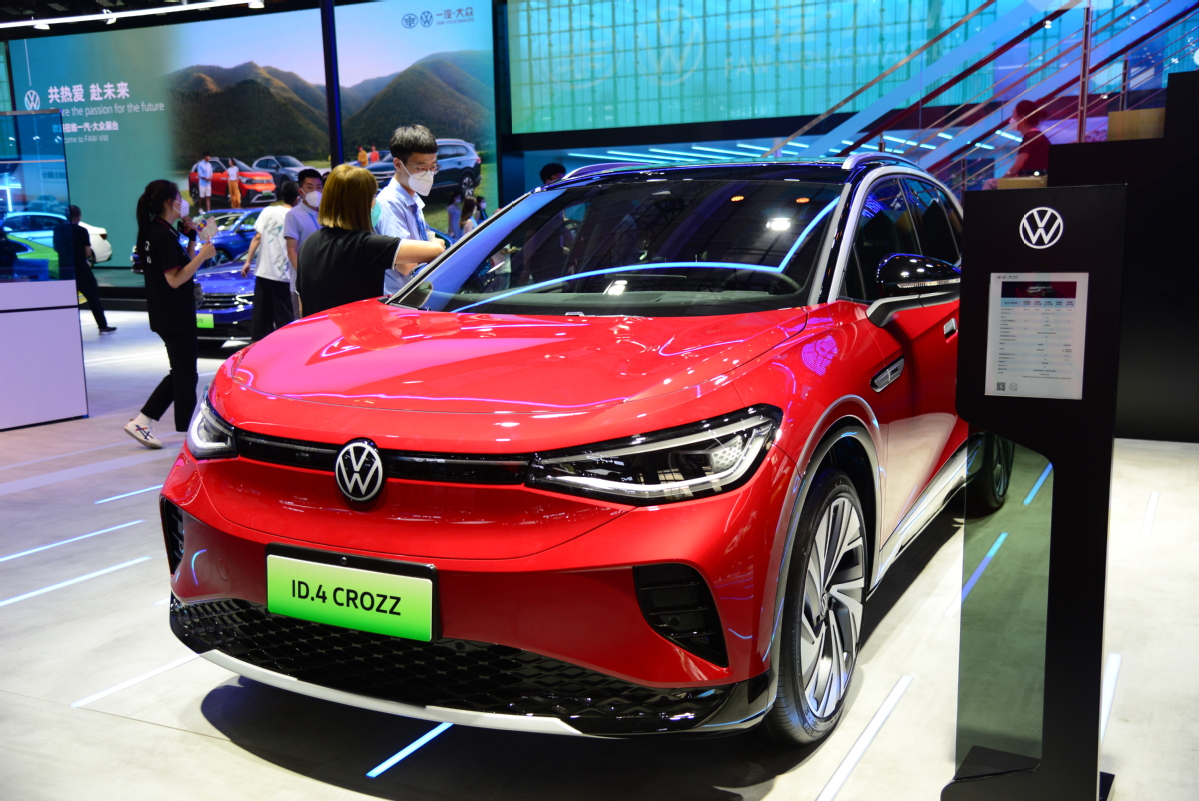Green goals connect Sino-German NEV biz


HEFEI — The global carbon reduction initiative and the transformation of the automobile industry have created tremendous opportunities for China-Germany cooperation in the new energy vehicle (NEV) sector, industry experts said at the Sino-German Forum on the Development of the NEV Industry.
As part of the 2022 World Manufacturing Convention held in Hefei, capital of East China's Anhui province, the forum was attended by experts and heads of NEV enterprises from the two countries.
"Both China and Germany are leading car manufacturing countries and have developed complementary advantages in automobile technology and the market. Cooperation in the automobile industry between the two countries has been carried out in multiple fields and achieved remarkable results," said Xiong Meng, an official of the China Federation of Industrial Economics.
China has a booming NEV market, with both sales and production ranking tops globally for seven consecutive years. The promising performance of the Chinese NEV market has injected confidence in cooperation.
In August alone, China's NEV sales volume was 530,000 units, a year-on-year increase of 111 percent. This kind of sales achievement shows that the future market has huge potential, said Erwin Gabardi, CEO of Volkswagen Anhui.
Many Sino-German cooperation projects covering both the upstream and downstream segments of the NEV industrial chain are advancing at full speed.
In June, Chinese battery cell manufacturer Gotion High-Tech held an opening ceremony for Gotion Germany at its Gottingen base in Germany. China's leading automaker FAW and German carmaker Audi launched a project in the same month to manufacture purely electric vehicles in Changchun, capital of northeastern Jilin province.
Volkswagen Anhui will begin pre-series production of its first model next month, with mass production scheduled for 2023.
NEV cooperation is closely linked to the green and low-carbon vision shared by the two countries.
Hildegard Muller, president of the German Association of the Automotive Industry, said profound changes are taking place in the automobile sector. The European Union aims to achieve carbon neutrality by 2050 according to the European Green Deal, and China has announced that it will peak carbon emissions before 2030 and achieve carbon neutrality by 2060. These goals present great challenges for the automobile industry.
"We're committed to making carbon neutrality possible, but we're only able to achieve the goals jointly," Muller said.
The concept of green manufacturing is deeply anchored in China's industrial development strategy, said Gabardi. Volkswagen's new MEB plant in Anhui will be powered by green energy and incorporate energy-saving strategies to reduce overall carbon emissions, he said.
Li Ming, general manager of Anhui Jianghuai Automobile Group Corp Ltd, said that new trends in the automobile industry, including electrification, networking and intelligent technologies, bring Sino-German cooperation into a new era.
Li said that new bilateral cooperation will not only promote coordinated development in the era of intelligently connected vehicles and realize a green transformation but also deepen economic and trade cooperation between the two countries and foster global economic growth.
The global NEV industry has recently been greatly affected by chip shortages and rising costs of batteries. Attendees at the forum said they believe that close cooperation between NEV enterprises in China and Germany will help enhance the resilience of industrial and supply chains.
"China and Germany should deepen the integrated and coordinated development of industrial chains based on their own advantages, and join hands to tackle chip shortages and skyrocketing commodity prices," Li said.



































